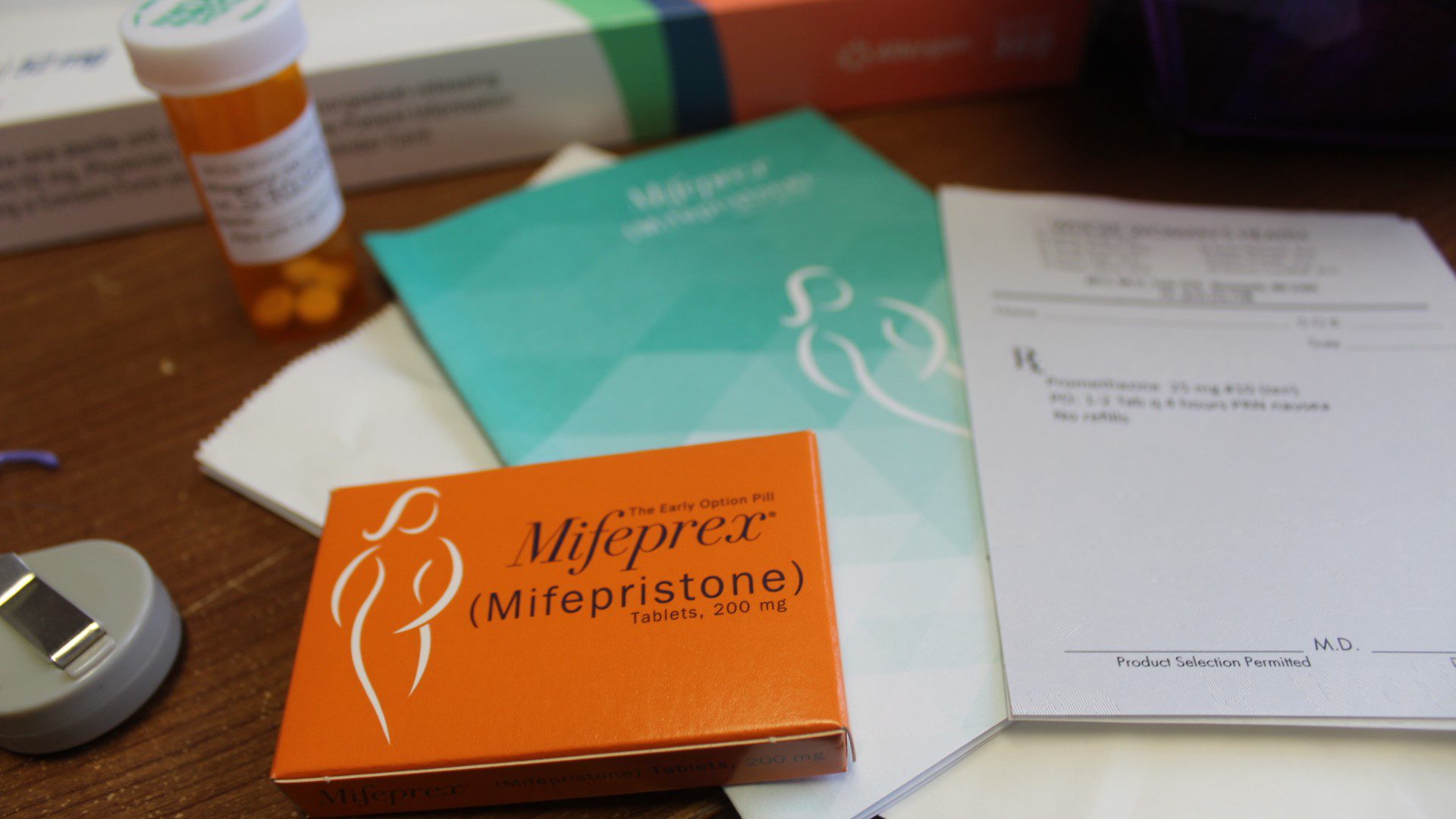Most abortion clinics in Maine offer medicinal abortions only, meaning a Texas lawsuit seeking to ban the most popular pill to end pregnancy could have a major impact on women in the state seeking abortion care.
A group of conservative doctors is suing the Food and Drug Administration (FDA) in federal court over the use of mifepristone, one of the two drugs used in most medicinal abortions. Of the 21 abortion clinics in Maine, 18 offered only medicinal abortions using mifepristone in 2021, according to a recent nationwide study.
Just three clinics offered both medicinal and procedural abortions, and none offer only procedural. Maine is one of the states — many of them rural — with the highest reliance on medicinal abortions in the country. Nationally, more than half of reported abortions are performed medicinally.
Mareisa Weil, the vice president of development and community engagement development at Maine Family Planning, told The Maine Monitor that the court’s decision could affect Mainers more than last summer’s Dobbs decision that overturned Roe v. Wade.
“Because of our strong state laws and the strong legislative canons in Maine, we were fortunate to be somewhat protected from the impacts of Dobbs,” she said. “This could have a more direct impact on patients in Maine than the Dobbs ruling.”
RELATED: Young women react with shock, resolve to Dobbs decision
Currently, 17 of the 18 clinics run by Maine Family Planning offer only medicinal abortions. Sixty percent of all abortions performed by the group use mifepristone, the drug that could be outlawed.
“Mifepristone is kind of the gold standard for the medication abortion,” Weil said. “Despite that, we will continue to provide medication abortions if the judge outlaws it. We will just use misoprostol.”
Misoprostol is commonly used alongside mifepristone to end pregnancy. While using only misoprostol is still safe and effective, it often has more side effects, including diarrhea and fevers, according to the Mayo Clinic.
At Planned Parenthood of New England, approximately 70 percent of patients who choose to end their pregnancy in the first 11 weeks use mifepristone, the organization reported. Like Maine Family Planning, Planned Parenthood said it is committed to continuing to provide medication abortions and will switch to the misoprostol-only method.
The Mabel Wadsworth Center, a women’s clinic in the Bangor area, estimates that half of the abortions it provides are medicinal. Abbie Strout-Bentes, the director of community engagement for the group, confirmed that like Maine Family Planning and Planned Parenthood, the center plans to offer the misoprostol-only method if the ban on mifepristone occurs.
“Studies show that misoprostol-only abortions are slightly less effective,” she said. “It’s alarming. It’s clearly politically motivated because mifepristone has been safely used in the United States for over 20 years. We know that this isn’t about the safety of the medicine.” Mifepristone was first approved by the FDA in 2000.
Strout-Bentes also acknowledged that if the drug is banned, states that were untouched by the overturning of Roe v. Wade will be affected.
“It could be the first time we experience a direct impact,” she said. “The anti-abortion movement has the goal of banning abortion across the entire United States and they’re coming up with tactics to do that. It remains accessible and legal in Maine, but we need to be really aware of the efforts to try to ban it nationwide.”
The plaintiffs in the nationwide case are doctors within the Alliance of Hippocratic Medicine, a conservative-leaning anti-abortion group. The alliance is asking for a preliminary injunction before the trial to put an automatic stop on the availability of mifepristone.
According to the Washington Post, the lawsuit argues that the FDA should not have approved mifepristone in 2000. The alliance contends that the government ignored what the plaintiffs contend are harmful side effects — a position sharply disputed by physicians and other experts.
Nancy Wanderer, a professor of law at the University of Maine who focuses on women’s issues, believes abortion care would be sharply impacted if the judge grants the injunction.
“The FDA would have to stop allowing it while the injunction is in place, and there could be literally years that the medication could not be available to anybody while awaiting trials and appeals,” she said. “It would be particularly tough for rural parts of Maine where access to legal abortion is really difficult. It would be devastating.”
To be granted the injunction, the plaintiffs must prove there is a good chance they can win the trial and that the drug is causing irreparable harm, she said.
“In this case the drug has been around for 20 years and there’s been no harm, so why take it off the market now?” Wanderer said.
Though Maine Family Planning remains committed to providing medicinal abortions, Weil said the impact that the ruling could have on rural and low-income Mainers is prominent.
“This decision, especially in a state like Maine, which is extremely rural, would be negative for low-income people,” she said. “Having access to medication abortion helps low-income women overcome disparities by having Telehealth visits to remove cost barriers. We really need all of the options and never want to compromise on the fact that people deserve all types of care.”
Anne Perry, a state representative and former nurse representing a northern part of the state, including Calais, said she’s worried about the impact a ban could have on her rural constituents.
“Each thing that gets denied affects the ability for a rural person to get the care they need,” she said. “The hardest part is that women, especially those who live in rural areas of Maine, need choice over their own bodies. I have no desire to take that choice away from them.”







